Hydrocortisone Injection
$60.00 – $150.00Price range: $60.00 through $150.00
| Pack Size | Price | Price / Unit | Quantity | |
|---|---|---|---|---|
| 3 Injections | $60.00 | $20.00/ unit | ||
| 5 Injections | $90.00 | $18.00/ unit | ||
| 10 Injections | $150.00 | $15.00/ unit |
Looking for bulk / B2B pricing? | Send Inquiry |

| SKU | 11467 |
| Manufacturer | Neon Laboratories Ltd |
| Categories | Inflammation |
| Delivery Time | 10 - 14 Working Days |
Introduction to Hydrocortisone Injection
Hydrocortisone Injection is a corticosteroid medication commonly used to manage various inflammatory and autoimmune conditions. It is administered directly into the body to provide fast-acting relief for symptoms such as swelling, redness, and severe allergic reactions when oral medications may not be effective.
This injectable form is often used in hospitals and emergency settings, especially in cases requiring rapid intervention, like adrenal crisis, severe asthma attacks, or allergic responses. It offers quicker absorption and stronger results compared to oral forms of hydrocortisone.
Hydrocortisone Injection can be given through intravenous (IV) or intramuscular (IM) routes depending on the condition being treated. It is usually administered by a healthcare professional in a controlled medical setting to ensure proper dosage and monitoring of side effects.
Uses of Hydrocortisone Injection
Hydrocortisone injections are used to treat various medical conditions due to their potent anti-inflammatory and immunosuppressive properties. Here are some common uses of hydrocortisone injections:
- Allergic Reactions
- Autoimmune Disorders
- Dermatological Conditions
- Joint Inflammation
- Respiratory Conditions
- Adrenal Insufficiency
How Does Hydrocortisone Injection Works?
Hydrocortisone Injection works by mimicking the natural hormone cortisol, which is produced by the adrenal glands. It helps control inflammation and immune responses in the body by reducing the release of substances that trigger allergic reactions, swelling, and discomfort in affected areas.
Once injected, Hydrocortisone quickly spreads through the bloodstream to suppress overactive immune activity. This action makes it especially useful in treating severe allergic reactions, autoimmune diseases, or adrenal insufficiency, where the body requires an immediate and controlled anti-inflammatory effect to stabilize health conditions.
Side Effects of Hydrocortisone Injection
Common Side Effects
- Mild pain or swelling at the injection site
- Flushed face
- Sleep disturbances (insomnia)
- Increased appetite
- Mood changes
Serious Side Effects
- Severe allergic or hypersensitivity reactions
- Adrenal suppression
- Gastrointestinal perforation
- Eye complications
- Pancreatitis
Dosage of Hydrocortisone Injection
The dosage of Hydrocortisone Injection depends on the specific condition being treated, the patient’s age, weight, and overall health. For adults, typical doses range from 100 mg to 500 mg administered intravenously or intramuscularly, usually every 6 to 8 hours as directed by a physician.
In children, the dosage is carefully calculated based on body weight and severity of the condition. It must be administered under strict medical supervision to ensure safety. Long-term use may require gradual dose reduction to prevent withdrawal symptoms or hormonal imbalance in the body.
How To Manage Side Effects?
hydrocortisone injection involves a combination of monitoring, communication with healthcare providers, and, in some cases, lifestyle adjustments. Here are some general strategies for managing the side effects of hydrocortisone injection:
- Monitor Blood Pressure Regularly
- Maintain a Low-Sodium Diet
- Watch Blood Sugar Levels
- Use Bone Support Supplements
- Avoid Sudden Discontinuation
- Report Mood Changes
Warnings & Precautions
Hydrocortisone injection is a potent medication that requires careful use, and certain warnings and precautions should be considered. It is essential for both healthcare providers and patients to be aware of these factors to ensure safe and effective treatment. Here are some important warnings and precautions associated with injection:
1. Allergic Reactions:
- Individuals with a known allergy to hydrocortisone or any components of the injection should not receive the medication. Allergic reactions can be severe and may include symptoms such as rash, itching, swelling, severe dizziness, or difficulty breathing.
2. Systemic Effects:
- Hydrocortisone is a systemic corticosteroid that affects the entire body. Prolonged use or high doses can lead to systemic side effects such as fluid retention, hypertension, and changes in blood sugar levels. Patients should be closely monitored for these effects.
3. Infections:
- Corticosteroids, including hydrocortisone, can suppress the immune system, increasing the risk of infections. Patients should avoid exposure to contagious illnesses, and vaccination status should be reviewed with healthcare providers.
4. Osteoporosis:
- Long-term corticosteroid use can lead to bone loss and an increased risk of osteoporosis. Patients at risk may be advised to take calcium and vitamin D supplements, engage in weight-bearing exercises, and undergo bone density monitoring.
5. Psychiatric Effects:
- Corticosteroids can affect mood, and individuals may experience mood swings, irritability, or anxiety. Patients with a history of psychiatric disorders should be closely monitored.
Storage
- Keep Injection between 20°C to 25°C (68°F to 77°F) unless otherwise directed on the packaging.
- Do not freeze the injection solution, as it may affect the medication’s stability and effectiveness.
- Keep the vials in their original packaging to shield them from direct sunlight and light exposure.
- Store in a dry place, avoiding humid environments like bathrooms or near sinks.
- Do not use Injection after the expiration date printed on the vial or box.
- Store in a secure location away from children and pets to prevent accidental use.
Frequently Asked Questions
1. Is Long-Term Use Of Hydrocortisone Injection Safe?
Ans. Long-term use of this Injection should be closely monitored by a healthcare provider, as it may lead to side effects such as weakened bones, increased infection risk, weight gain, or adrenal suppression. Regular checkups and lab tests are important during extended therapy.
2. What Should I Do If I Miss A Dose Of Hydrocortisone Injection?
Ans. If a scheduled dose of Injection is missed, contact your doctor as soon as possible for instructions. Do not try to administer an extra dose on your own. Consistent timing is important for conditions like adrenal insufficiency where hormone levels must be stabilized.
3. Can I Take Hydrocortisone Injection At Home Without A Doctor?
Ans. This Injection should not be self-administered unless specifically instructed and trained by a doctor. It is usually administered in a medical setting where professionals can monitor for adverse reactions and ensure accurate dosage and proper technique.
4. How Is Hydrocortisone Injection Administered To Patients?
Ans. This Injection is usually given by a healthcare professional through a vein (intravenous) or into a muscle (intramuscular). The method depends on the urgency and type of condition being treated, and it must be administered under strict medical supervision to ensure proper dosage and timing.
| Pack Size | 10 Injections, 5 Injections |
|---|---|
| Price/Unit | $15/unit, $18/unit, $20/unit |
Be the first to review “Hydrocortisone Injection” Cancel reply
Related Products
No related Products Found

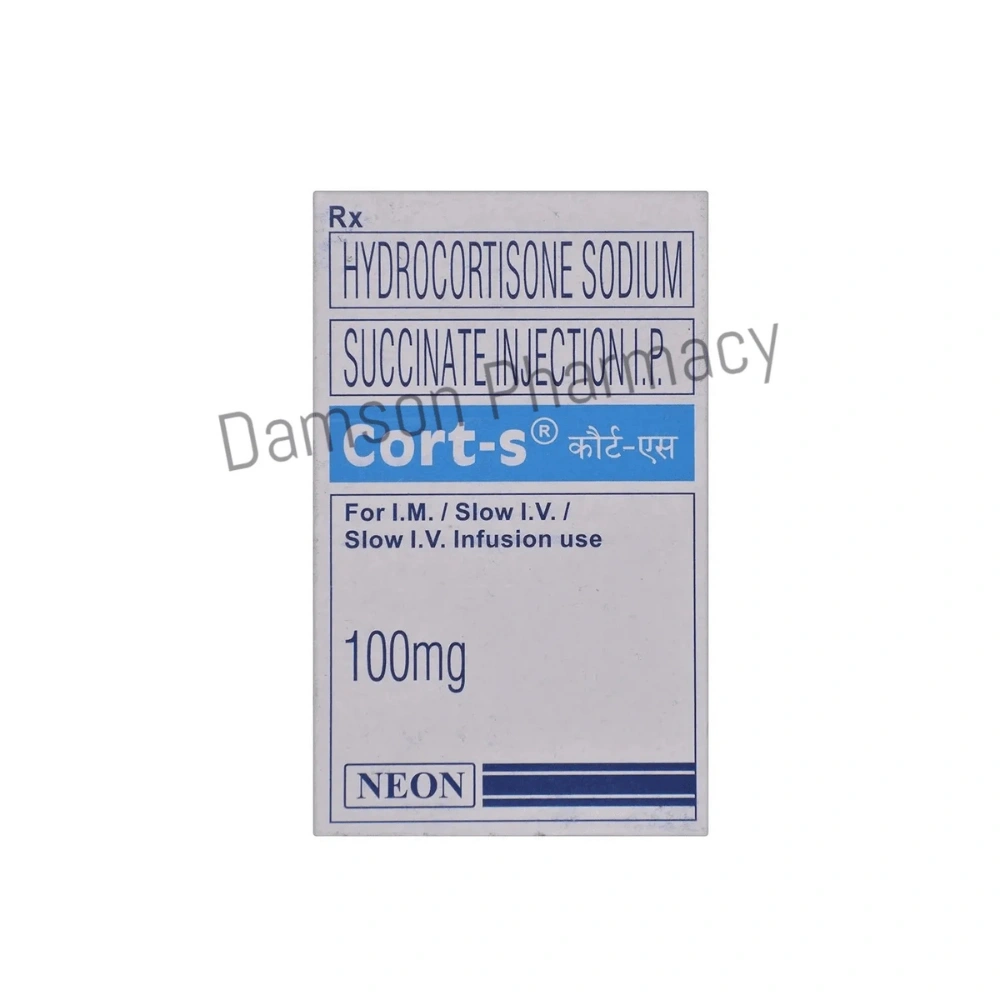
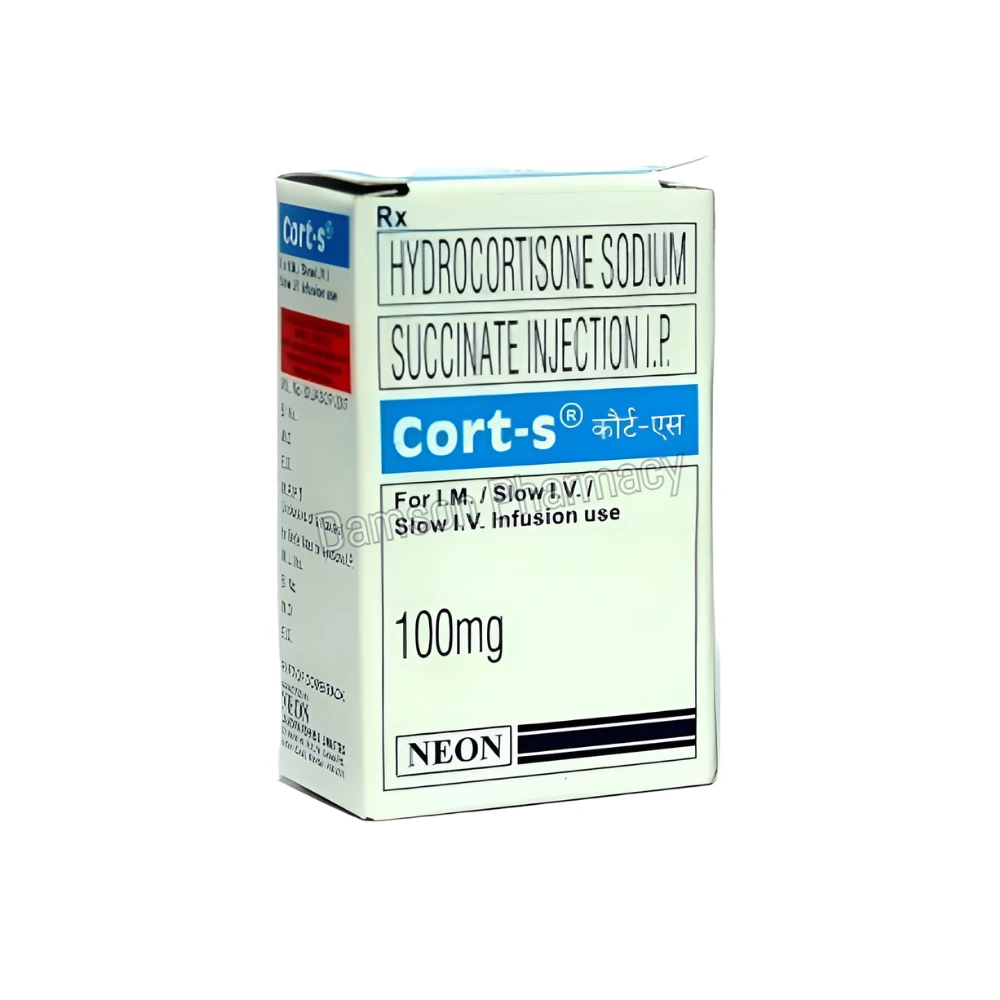
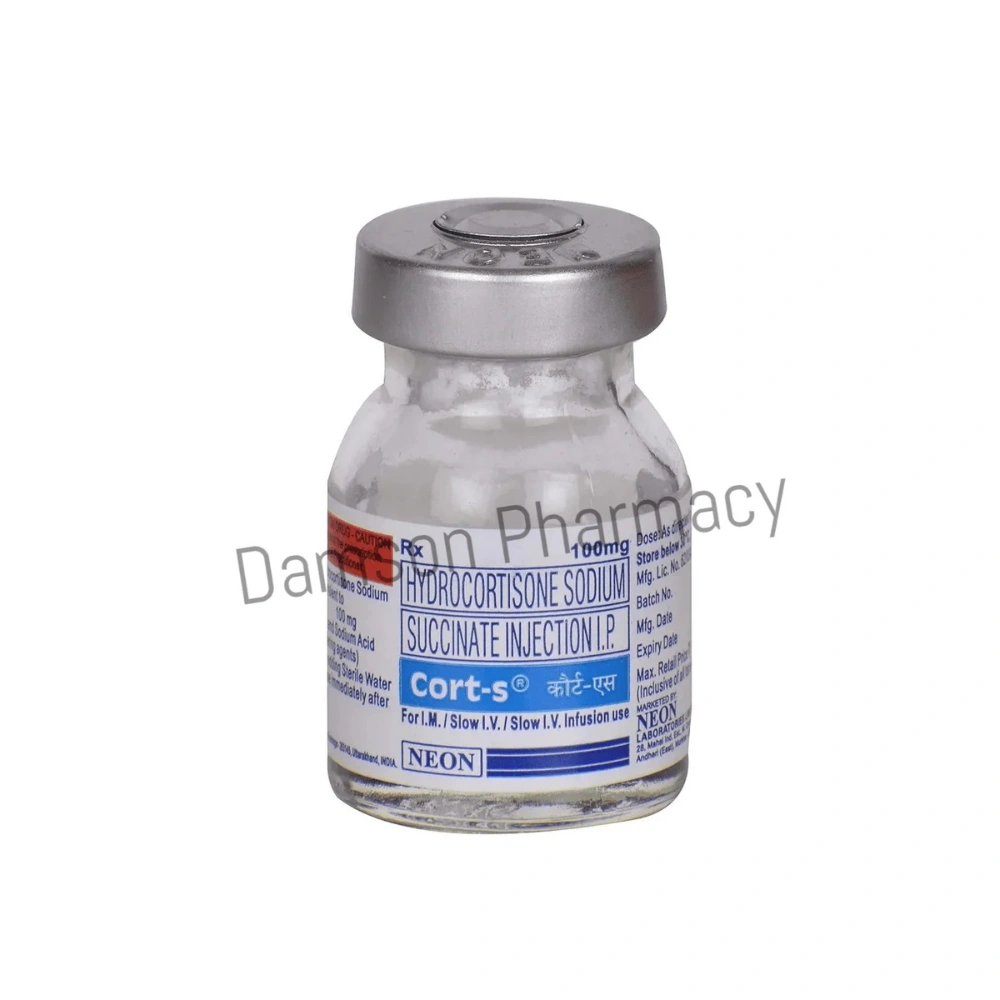
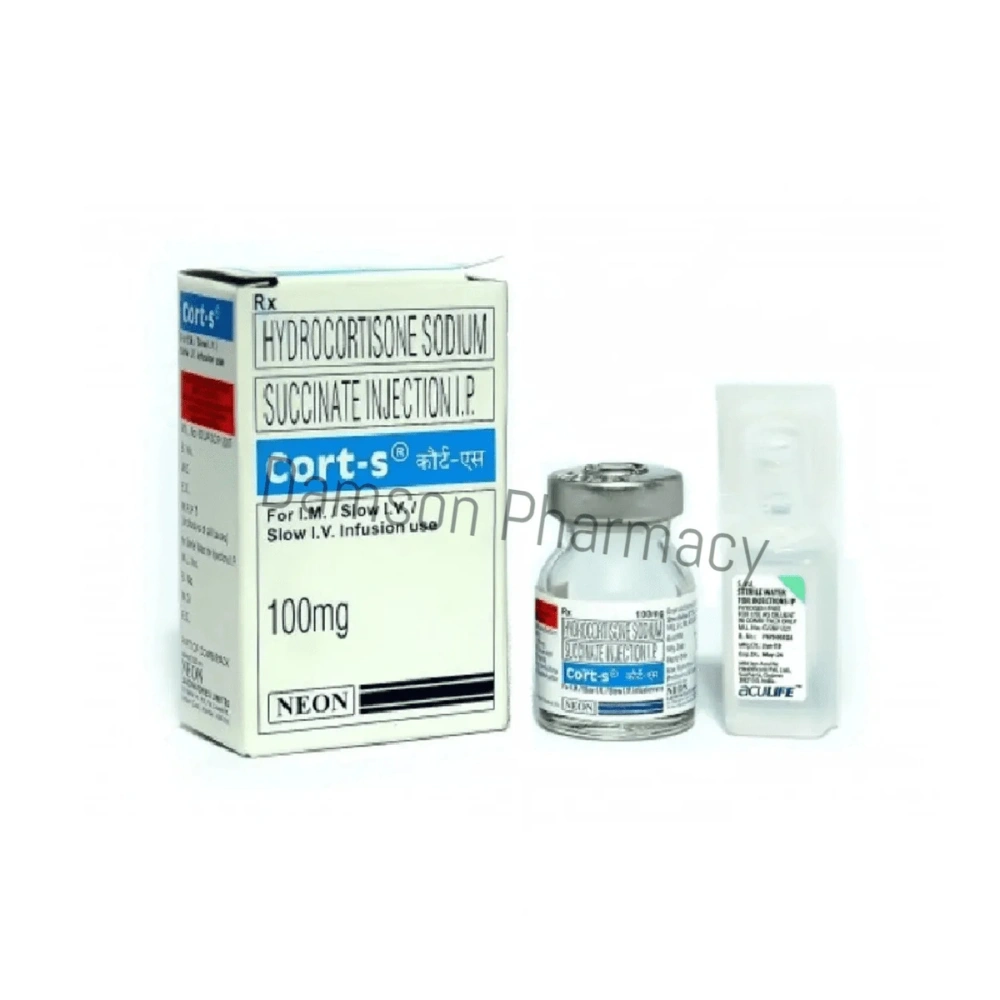
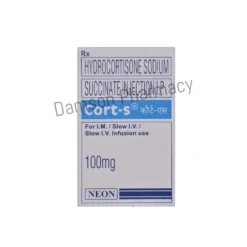
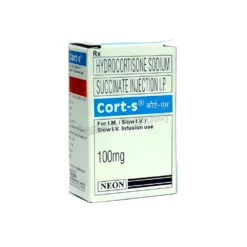
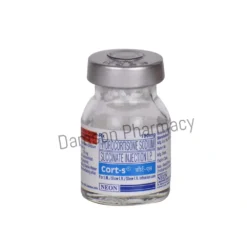
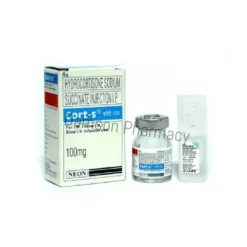
Reviews
There are no reviews yet.